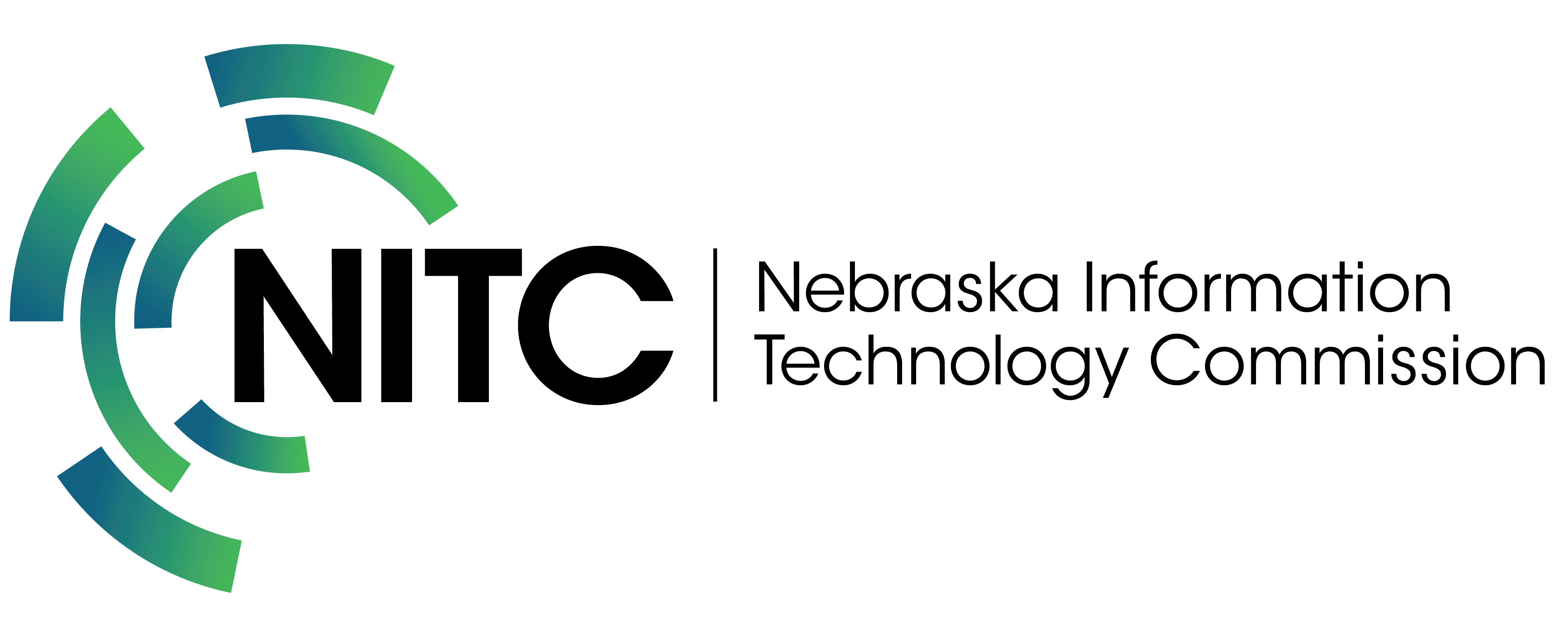Gene Hand Retires from PSC after 40 Years of Going the Last and Extra Mile
After 40 years of working to advance telecommunications in Nebraska, Gene Hand is retiring from his position as Director of the Telecommunications Department for the Nebraska Public Service Commission.
"In all of my 28 years at the Commission, I have not known a single staffer or Commissioner who has worked harder or more zealously for the Nebraska consumer than Gene,” said Commissioner Frank Landis. “He truly embodies the term ‘public servant!’"
Gene began working for the Commission in 1976—twenty years before the Telecommunications Act of 1996—and is retiring this year—twenty years after the Telecommunications Act of 1996. During his 40 years with the Commission, Gene has seen a lot of changes—including moving from multi-party lines to single party lines, implementing direct dialing, area code numbering issues, opening up local markets to competition, and the still-ongoing transition from a copper-based telephone network to a fiber-based digital broadband network. How successful has the 1996 Telecommunications Act been? Gene feels it is a mixed bag. Competition has pushed out some technological advancements. The internet, for example, may not have flourished under a more regulated environment. However, opening local markets to competition has yet to produce the changes many expected.
“In markets as small as Omaha, Lincoln, and Grand Island, competition can exist,” explained Gene. “In smaller communities, opening up markets to competition hasn’t produced the same result. I’m from Edgar. The likelihood that Edgar would be served by multiple providers isn’t high.” He further explained, “Telecom policy decisions were made not thinking about telecommunications as a utility. I think it needs to be viewed more like that. If you view it as a utility and take an open architecture approach then you can have multiple providers using the same infrastructure. Most rural markets can’t support multiple infrastructures.” Keeping up with technology has been challenging for regulators. “Technology has transformed the provision of telecommunication services dramatically,” said Gene. “The regulatory environment is trying to transform with it. Things are changing so quickly that it is nearly impossible to keep up with it.” Gene’s involvement in telecommunications went far beyond Nebraska.
“Gene went above and beyond his regular duties at the Commission, serving on many national and state boards forming telcom and broadband policies,” said PSC Commissioner Tim Schram. ”Gene's work was firmly based on what was in the public's interest. In broadband terms, Gene not only went the last mile, he always went the extra mile.” Gene actively participated in federal policy discussions through the National Association of Regulatory Utility Commissioners and other groups including the Federal State Joint Board on Universal Service. The involvement of Gene along with other PSC Commissioners and staff has helped policy makers better understand the needs of rural states. As an example, Gene cited the success of a panel moderated by Commissioner Tim Schram on how agricultural producers are using broadband at last summer’s NARUC meeting. Many in attendance were unaware of how important broadband was to agricultural producers before attending the session.
Partnerships are one way to advance the deployment of telecommunications services. “We are a take charge state,” said Gene. “We only have so many resources, so public private partnerships are important.”
The Universal Service Fund is an example of a public-private partnership. Federal and state funds are used to support telecommunications services to high-cost areas. Two federal programs, the E-rate program and Rural Health Care program, provide support to schools, libraries, and health care facilities. Additionally, the Nebraska Universal Service Fund supports the Nebraska Statewide Telehealth Network. Lastly, the federal and state Lifeline programs provide support for low-income consumers. As telecommunications infrastructure is transitioning from a copper-based analog infrastructure to a fiber-based digital infrastructure, the federal and Nebraska universal service programs are also transitioning to support the availability and adoption of broadband services. Gene cautions, “It took 100 years to build telephone infrastructure. We can’t build the infrastructure required for broadband overnight and it will require billions of dollars nationally.”
Gene has been involved as a partner and supporter of multiple initiatives in Nebraska including Network Nebraska, the Nebraska Statewide Telehealth Network, NITC Community Council, NITC Technical Panel, FirstNet Working Group, Information Networking & Telecommunications Program Advisory Council at UNK, and the Nebraska Broadband Initiative. Why are partnerships important to Nebraska? “With limited resources, some projects need partners to be able to move a project forward,” said Gene. “Partnerships benefit from collective thinking and collective financial ability.”
When asked about what has been most rewarding about his time on the Commission, Gene replied, “What has been most rewarding is having the support to be on a lot projects, being able to share views on what is happening on the state and federal level, as well as being able to explain the Commission’s role.” In closing, he shared a favorite quote:
“He who has not the courage to be the hammer must be content to play the part of the anvil.”
Gene, we are glad you had the courage to be the hammer. Enjoy your retirement!
From the September/October 2016 issue of Nebraska Broadband

